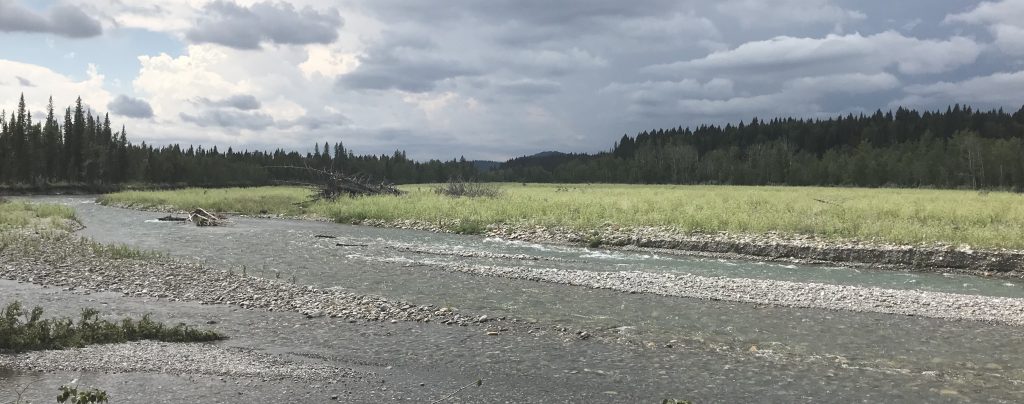I recently challenged a class of graduate students to take on the UP-GOER FIVE CHALLENGE, in which they use only the ten hundred most common words in the English language to describe what it is that they do. Then I tried to describe what I do using the same. It got interesting in a hurry, and gobbled up far more time than it should have. However, I think it helped cut through to the essence of what we actually do at research universities in a way that more articulate prose does not. See what you think.
what you think.
Brett Eaton, PhD, Up-Goer Five Style
I am a middle aged person who studies water moving over the land. Many young people help me to do this. Together, we want to know more about how moving water changes the land, and how it can do bad things to those of us who live close to the water. We look at how fast the water moves, and how much land it can eat up and carry away. We want to know when the moving water can cause bad things, and how to build roads and houses and other things near moving water so that bad things do not happen to them. The bad things we think about are going to happen more next year, and the year after that, because the world is getting hotter and the air is getting wetter, making more rain in many places. The towns and cities we live in, and the roads between them, are not ready for a hotter, wetter world. We also want to know what the world changes will do to the animals and other things that live in the moving water. The young people I work with study moving water on the land, and in a building made to study moving water carefully. We also use boxes that add numbers and take numbers away to guess what moving water does on the land and in the building made to study them. All these ways of studying moving water make us better at guessing what will happen next year, and the year after that. This is much more fun for me than studying air moving around the world from one place to another, or studying things that grow on the land or in the water, but studying those things is important too. By putting it all together, maybe all of us working together can guess what will happen to everything in a hotter, wetter world. Maybe not. But it would be fun to try. That is why I work here, in this building, where all of us study something.